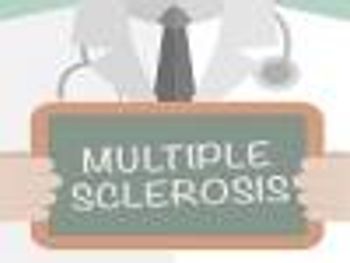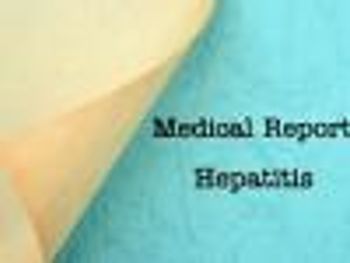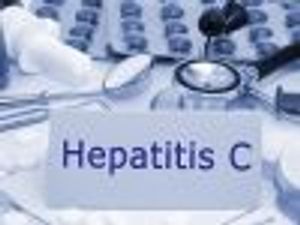
HIV infection is associated with higher rates of hepatitis C replication.

HIV infection is associated with higher rates of hepatitis C replication.

An increasing number of patients with decompensated cirrhosis are receiving direct-acting antiviral treatment and attaining sustained virologic response of hepatitis C, however, their long-term outcomes are unclear.

Study finds chronic hepatitis C virus infection should not delay the initiation of an urgent cancer therapy.

Achievable steps could be taken to reach the World Health Organization goal of eliminating hepatitis B and C virus infections as public health threats by 2030.

A novel vaccine to prevent hepatitis C infection has been tested in Baltimore and at two other sites in the United States.

Stem cell transplantation found to provide greater protection than disease-modifying therapy against progression of relapsing-remitting multiple sclerosis.

Because pregnancy is one of the few times individuals are in contact with the health system and covered by health insurance, there is a cost-effective opportunity to screen for hepatitis C virus.

Study finds that glecaprevir/pibrentasvir pan-genotypic efficacy for hepatitis C virus is achieved regardless of whether patients are concurrently receiving gastric acid-reducing drugs.

Study highlights the importance of managing depression and anxiety to mitigate the effect on the cognitive function of patients with multiple sclerosis.

Longitudinal study of direct-acting antivirals for hepatitis C virus infection finds that treatment provides clinical benefit beyond virologic response, reducing risk for both all-cause mortality and for liver cancer.

A novel method of inactivating hepatitis C virus in donor lungs could increase transplantations for patients with end stage lung disease.

Analysis finds universal screening for hepatitis C virus infection would be cost effective and provide greater benefit than the currently recommended birth cohort screening.

The 2010 remanufacturing of Purdue Pharma's OxyContin (oxycodone) into an "abuse-deterrent formulation" has been identified as a key contributing factor in opioid abusers switching to heroin injections and the corresponding surge in hepatitis C virus (HCV) infections, according to a new Rand Corporation study.

Injection drug use has been identified as a predominant risk factor for hepatitis C infection and the opioid epidemic has been suggested as a driver of a recent rise in infections.

Post-cure care for hepatitis C can reduce the risk of liver disease progression in those with advanced fibrosis and ongoing risk factors for liver injury.

Clear differences in hepatitis C virus worldwide indicate the need to increase global understanding of the virus.

Understanding the rate of hepatitis C infection is critical for making strategies to reduce the disease burden among specific populations.

Application of core area methodology can help identify new hepatitis C cases and outbreaks and improve testing and treatment.

Patients with hepatitis C virus treated with direct acting antiviral drugs showed successful long-term outcomes regardless of receiving opioid substitution therapy for drug addiction.

Combination of glecaprevir and pibrentasvir for hepatitis C virus genotype 3 effective over an 8-week treatment duration.

A substantial portion of mortality from liver cirrhosis and hepatocellular carcinoma can be attributed to the extrahepatic manifestations associated with hepatitis C virus.

Study finds that treating hepatitis C reduced the risk of developing the signs and symptoms of Parkinson disease.

Transcranial direct current stimulation shows promise in addressing fatigue in patients with multiple sclerosis.

Experts argue whether a decline in cognitive function should lead to a change in disease-modifying therapy for multiple sclerosis.

Detecting hepatitis C RNA in peripheral blood mononuclear cells or liver cells in patients who are negative for viral RNA raises questions about the risk of transmission to other individuals.

Early detection is vital to more patients with hepatitis C virus being eligible for increasingly efficient direct-acting antiviral treatment options.

Antiretroviral drug treatment was not found to be a cause of the higher prevalence of hypertension in persons infected with HIV.

All-oral direct-acting antivirals had a significant effect on the clinical and economic outcomes of patients with hepatitis C virus in the 4 years following the approval of these treatments.

Hepatitis C virus found to increase mortality in individuals coinfected with HIV, however, treatment with direct-acting antivirals may reduce harm.

Australia on track to achieve World Health Organization targets for eliminating hepatitis C virus over the next 10 to 15 years.

Published: February 6th 2019 | Updated:

Published: February 8th 2018 | Updated:

Published: March 20th 2018 | Updated:

Published: October 17th 2018 | Updated:

Published: October 24th 2018 | Updated:

Published: October 29th 2018 | Updated: